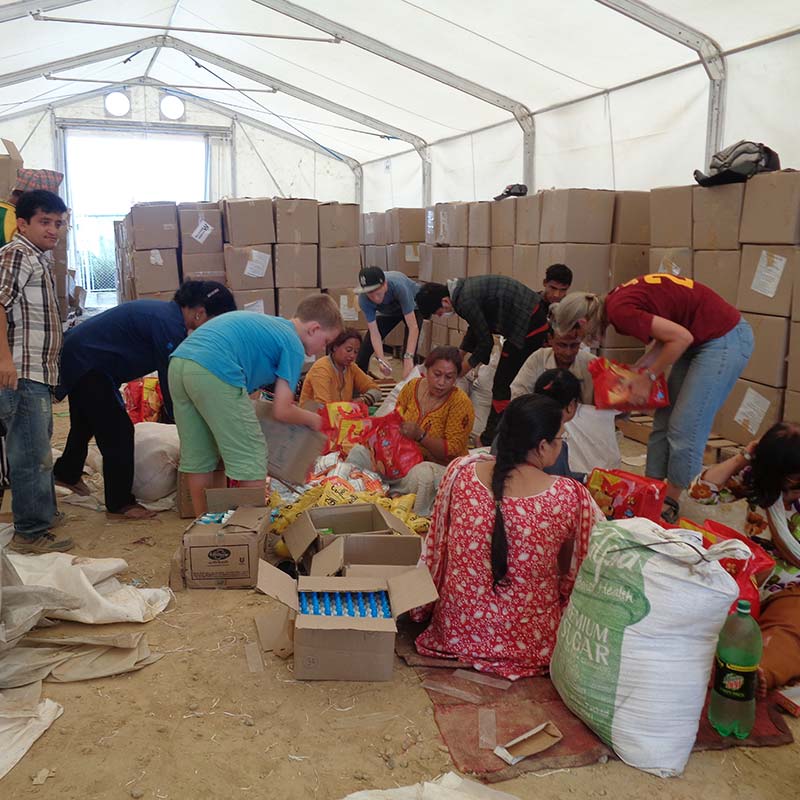Post-Earthquake Nutrition Support for “Thousand Days” Families (2015 — 2016)
Background
In 2015, Nepal was struck by a devastating earthquake and aftershocks that claimed the lives of nearly 9,000 Nepalis.
With widespread destruction and entire villages left homeless, NPCS was contacted by several communities asking for food assistance. Many other organisations were involved in emergency relief, but food packages were mainly rice and instant noodles.
In response, NPCS created and distributed food parcels particularly targeting the nutrition needs of pregnant women, breastfeeding mothers and young children — “thousand days” families. NPCS carried out this relief work with the financial support of Asian Health Institute (AHI), CMS Ireland and United Methodist Commission on Relief (UMCOR).
Project outcomes
1800 food parcels were distributed in four communities in the districts of Lalitpur and Dolakha. Food parcels included nutritious foods traditionally eaten in Nepali society, such as:
- kwaati (mixture of 9 types of dried beans prepared as soup)
- sarbottam pitho (flour made from cereals and soyabean)
- jwaano (herb that promotes breastmilk production when boiled as soup)
Water purification drops and hand soap were also included in the parcels to help protect hygiene.
During the food distribution, short nutrition sessions were given to women about how to use the food in the parcels for the wellbeing of themselves and their children.
Further nutrition training was carried out in Dolakha with another distribution of food relief.

